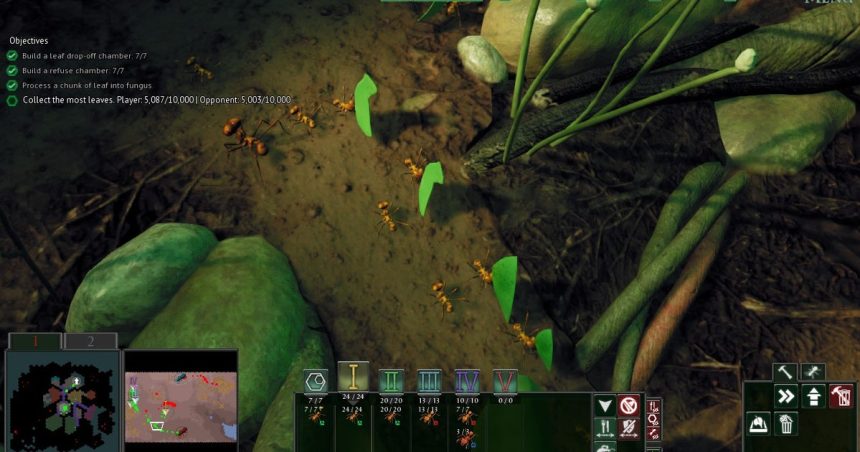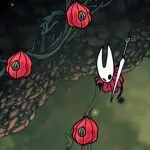My first memory is from Ali. Just fine. It’s one of the very early things that is now merely a momentary snapshot. They were moving around on the white door frame, but I don’t remember what I was doing, what I did with this observation, or whether someone even told me what Ali was or if I already knew. But I remember the charm that never left me. I will still die for them. To be fair, I would basically be a cool animal and/or die for someone who pretends to be friendship that passes by, but whatever. The points are as follows:
You’d think I played Undergrowth Empire sooner.
I did it! For years! Being Ants is one of these dream games concepts, very difficult, translates into a viable and satisfying design that is not super simplistic or glorious Reskin. And Slug Disco went ahead and did it.
Eotu’s first quirk is that it doesn’t fit perfectly into the obvious model. It’s a kind of cousin for dungeon keepers, where you’ll be positioned underground, tagging tags for workers to dig out instead of building, and spending food to turn exposed hexagons into nursery or food storage. The workers then bring stored food into the tile and either jump into fresh ants or sit indefinitely, waiting for an existing adult to die, creating larvae that can be replaced like human children.
They don’t build or train ants directly. There is also no traditional square drugs or Ctrl+business. Five set control groups are available (one for ant you want to dig, dig, and exchange larvae), and its direct control is limited to a single “Go Here” command and several toggles – ignore combat and ignore food. Sometimes you say, “Don’t climb a big threat and bite your butt,” but why have you ever been? However, even before these control groups, ants are automatically linked to others from the same nursery and cannot be divided. Therefore, they built an 11 hex soldiers Ali nursery, and those 11 soldiers are lifelong gal companions.
However, the nursery is not individually located rooms. They are determined entirely by placing hexagons adjacent to hexagons of the same caste (so technically you can divide the group by removing hexagons, but silence, nerd). They can also be upgraded more fully – hex food costs can be increased again. Its front cost means that the quantity is often higher than the quality, especially when the two foragingrs are more useful than the more efficient ones. But in an interesting twist, the ant itself costs the hatch the same regardless of the level, so the level 3 nursery hexagon is 240 meals (which actually can be much more, but I’ve already warned once), and when enough ants die, the “quantity” colonies burn faster and pressure on the resident workers who are replaced by larvae. Which is better? it depends.
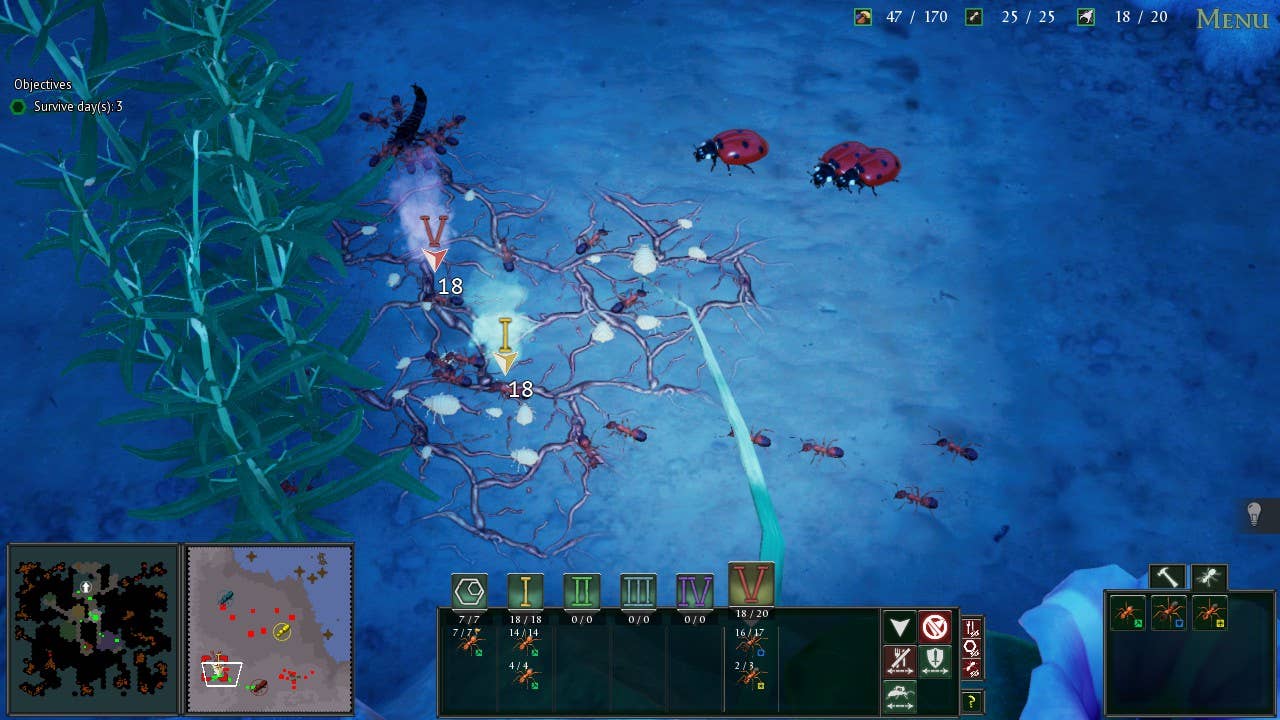
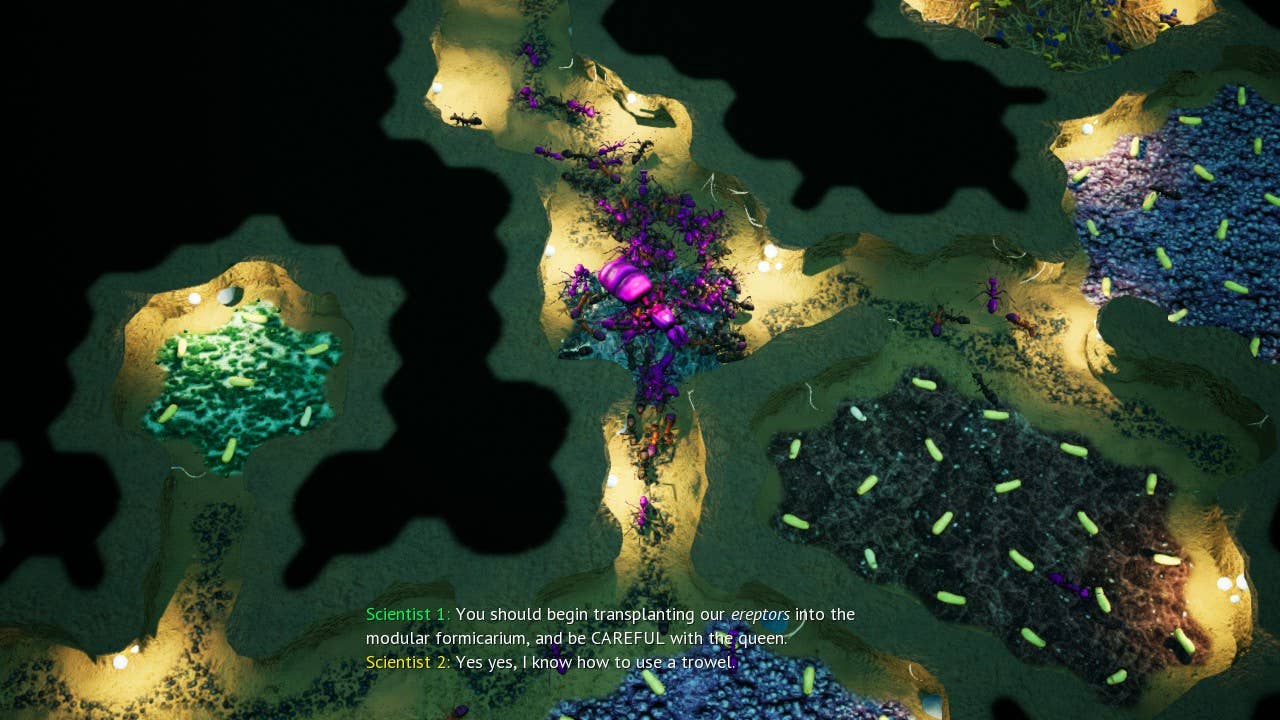
You don’t need to select either A or B. The granularity is to allow for mixing. Some castes acquire special abilities at the third level (two options at the start of the level) and seduce mass upgrades, but it is feasible to have an elite guard instead or give each nursery a pyramid ratio. It is not intended to control any special capabilities or micromanage the “go here” command in general, but it is not intended to set general patterns and instructions by moving inside or outside the control group. You also need to consider the time workers spend avoiding by spending food on the highway hexagons of speed bumps, shortening routes, or both.
Leafcutter Ali is to make this clear first in the campaign by shifting caste dynamics. It is clear that their soldiers (technically media, but-) are able to harvest much more leaves (which over time become fungal food, and require a teenage minimum to carry waste in a dedicated chamber) and produce in large quantities to fight. However, Leafcutter workers carry less and move slowly while doing it, but they are a quarter of the cost. And this includes majors: a very expensive chunky lath, with natural places scattered about slowly and vulnerable chunks of minors, moving to the brunt of every attack, as fight media gangs accumulate and bring Litlan back to work. This is a very interesting approximation of the actual ants’ behavior and is not similar to the immune system’s response.
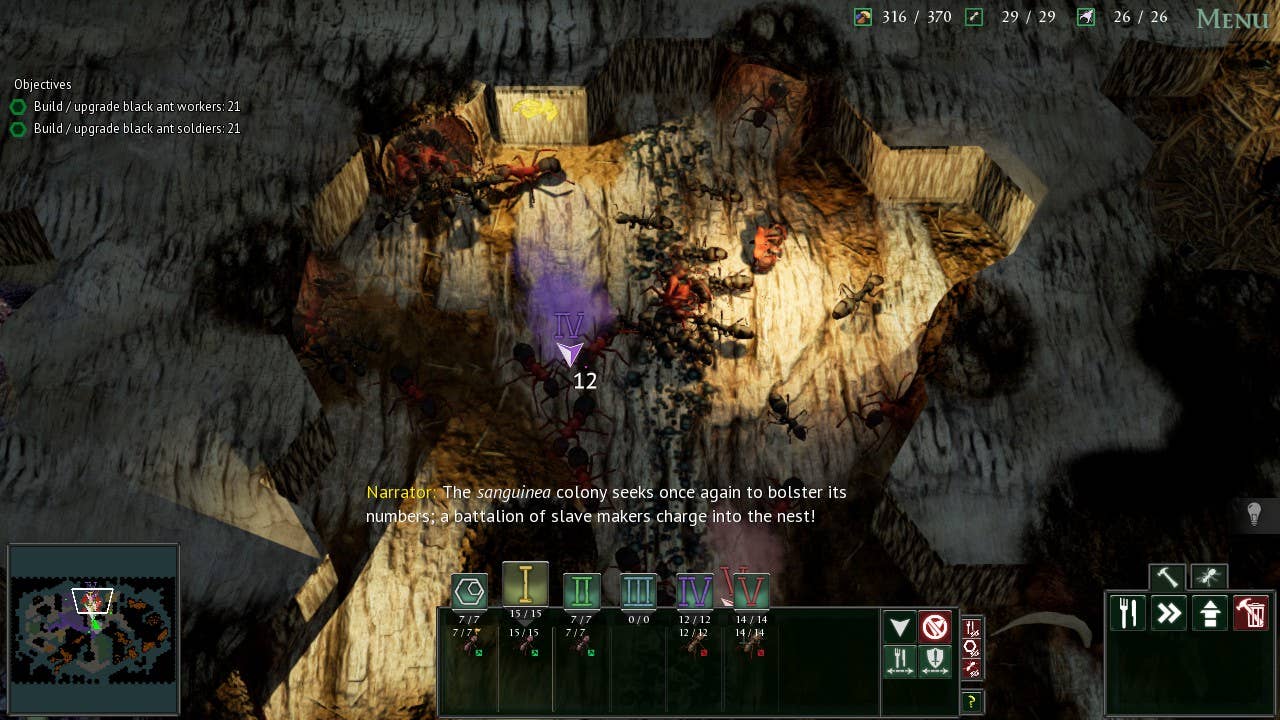
UnderGrowth is a game about managing capacity. It’s not just a number, it reflects its capabilities, but the constant auto-filling of losses will wipe out colonies that are too fast or too committed, and will not be able to bring home enough food during the fight. Fedi cool ant woman recently posted about the real world manifestation of such ability-based colony decision-making. Ants are waves, tides, and raindrops at once. You can play with set numbers and ratios, but you cannot build defenses or buildings or such individual units. There is no formation, and there is very little micromanagement or fine money. It’s more about impression than equations. It’s a very interesting rhythm conveyed both in design and in excellent presentation, completely different from other strategy games. The Nature Documentary Style narrator introduces the threats and concepts with dramatic talents that grabbed me in an era of similar concepts in Empire 4. They made the small, important choice, “Ali must do” or “Your Ali has” when they say, “Your Ali has” or “Your Ali has” they say, “Ali must do” or “Ali has.”
You feel like an ants: clever underdogs, simple prey, assholes of horrible terror. Unfortunately, the static queen aside, no one matters, but still great animations give them so many characters. They certainly run around, but do stops that often stop for no obvious reason. Spiders, too, can be incredibly fast and skilful to feel like a sleazy attack on a nest, but they are oddly acceptable if they just lurk near the line and aren’t worth interrupting the flow of food. Group order vs. individual behavioral designs lead to other recognizable emotions picked up by predators along the familiar line of leaf hair minors struggling with large wobbled leaf clumps, how single ants rejoin the front line. All of that character covers artificial elements and feels more motivated than the usual gingoistic war stories, even if they are virtually the same.
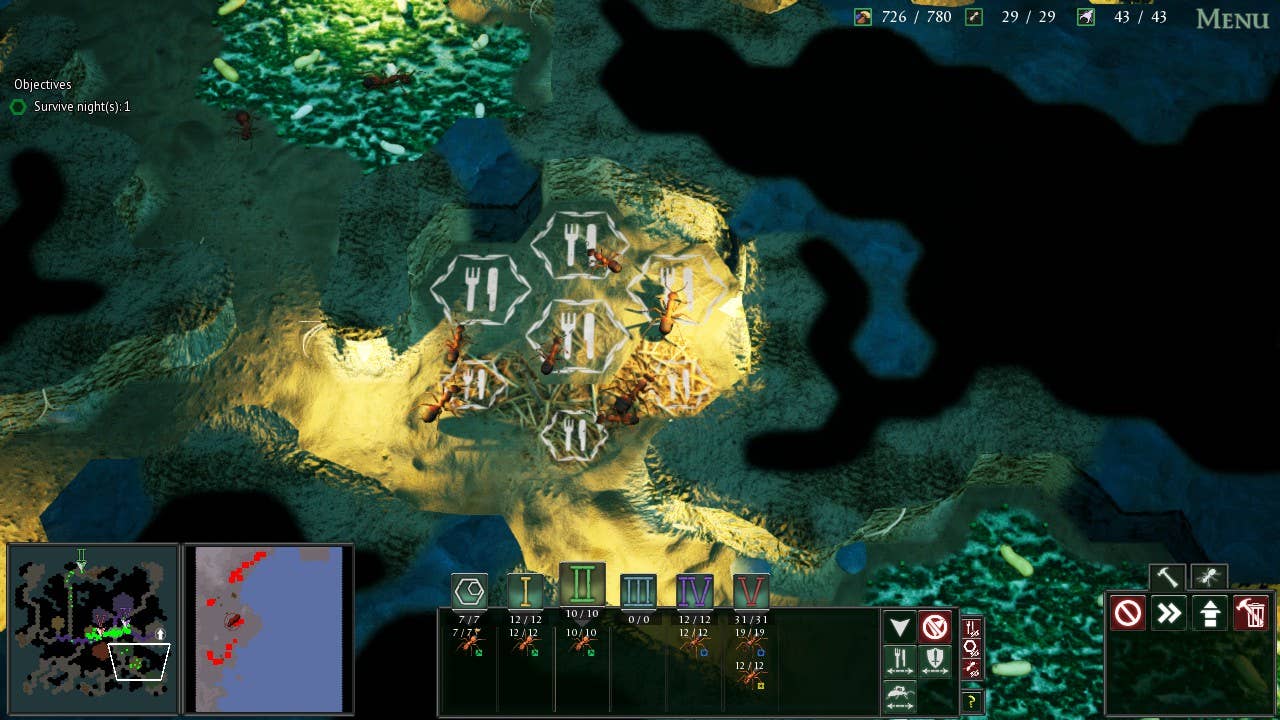
The lack of saves within the level is less troublesome than I thought.
I still dream of games like the modest ant/bee/spider/ from that impossible mega, but the undergrowth empire cleverly guides the nerds of nerdy ants and the challenges of pacy strategy.
(TagStoTranslate) Undergrowth (T) Hooded Horse (T) Indie (T) PC (T) Simulation (T) Strategy (T) Empire of Strategy: Real-time Strategy (T) Rally Points


